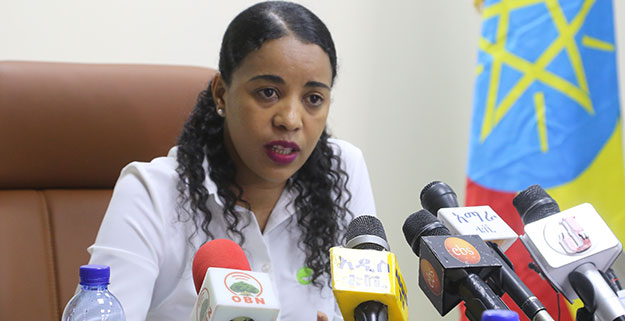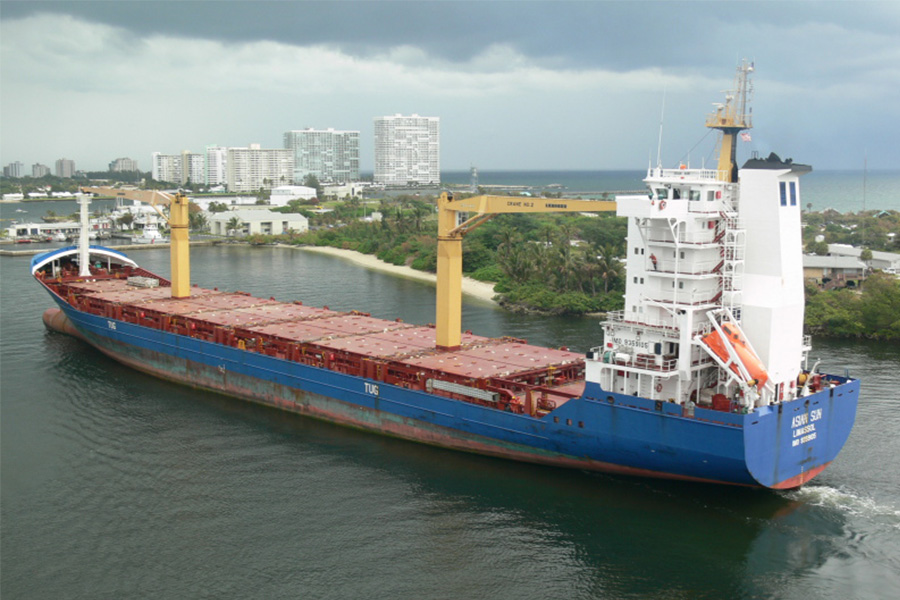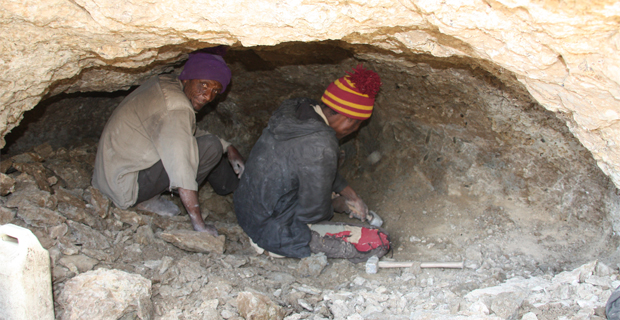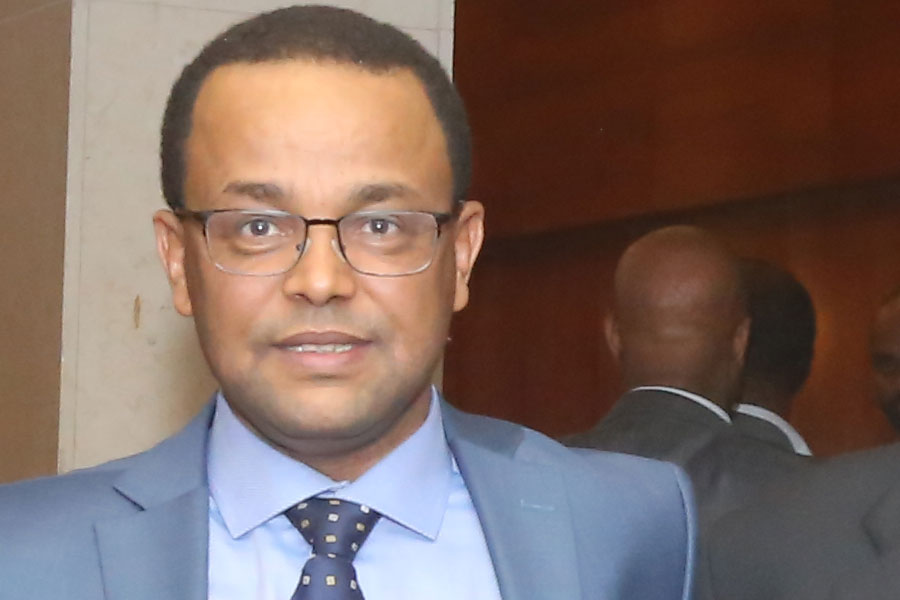
Commentaries | Aug 14,2021
Jan 5 , 2020
By MESAY BERHANU ( FORTUNE STAFF WRITER
)
The highest claim, 330 million Br, was paid to Ethiopian Airlines.
 Ethiopian Insurance Corporation (EIC) paid 95.1 million Br to EDR.
Ethiopian Insurance Corporation (EIC) paid 95.1 million Br to EDR. The giant state insurer has paid the second-highest claim ever to the Ethio-Djibouti Standard Gauge Railway (EDR), whose trains were damaged due to derailment.
Ethiopian Insurance Corporation (EIC) paid 95.1 million Br to EDR as compensation for the damage occurring on the Corporation’s two locomotive trains and 12 wagons eight months ago. During the accident, 13 people were on board, including three Chinese, three Djiboutians and seven Ethiopians, including four security officers. But none of the injuries were fatal.
The accident was caused by flooding occurring in Fentale Wereda some 15Km from the town of Metehara in East Showa Zone of the Oromia Regional State. At the same time, the train was on its way from Addis Abeba to Djibouti.
Netsanet Lamesa, CEO of the Ethiopian Insurance Corporation, handed over the check to Tilahun Sarka, director-general of the EDR on Monday, December 30, 2019, at the Insurance Corporation’s headquarters located near the National Theatre.
Netsanet Lamesa, CEO of the Ethiopian Insurance Corporation (right), handed over the check worth 95.1 million Br to Tilahun sarkar, director-general of Ethio-Djibouti standard gauge Railway s.C., on Monday, December 30, 2019.
Three international and a local firm, Ethiopian Reinsurance Company, gave reinsurance coverage for EDR's claim.
Munich Reinsurance Company from Germany covered 50pc of the claim, while African Reinsurance and PTA Reinsurance Company (ZEP-RI) provided 40pc of the reinsurance coverage together. Ethio-Re provided five percent coverage, while the remaining was covered by EIC, which has carried a total of 14.4 trillion Br worth of insurance premiums and made claims payments of 12.3 trillion Br in the past 44 years.
Following the accident, EDR interrupted its cargo freight for three weeks and passenger transport services for three months. The passenger transport resumed service by the end of last June. EDR has 400 permanent and 500 contract workers and operates with 31 freight locomotives including three passenger coaches. The railway system transits about 300 passengers a day.
The latest claim is the second-highest paid by EIC in the last 16 years next to the 330 million Br claim paid to Ethiopian Airlines.
EIC also made other claims payments of 21 million Br to Ethiopian Plastic Factory a few years ago. Two years ago, the Corporation paid over 16 million Br to MM Bedding Industries.
In 2017, it also paid 16.2 million Br to Anbessa City Bus Service Enterprise to compensate for damage caused by a fire accident that occurred at the Enterprise’s garage located in the Jemo area. The disaster entirely destroyed eleven buses and spare parts stored in the garage. It also partially damaged other buses stationed close to the accident site.
During the first half of the past fiscal year, EIC paid 507.9 million Br in claims for loss of property, life and legal liability. The underwriting surplus of 420.8 million Br in the first six months show a 24.6pc increase from the same period last year.
In the reported period, the gross written premium of the company has reached 2.5 billion Br, showing a percentage point increase from the same period earlier. It issued a total of 68,077 policies, a 6.2pc increase with the additional 3,964 policies compared to the same period the previous year. It also generated 177.1 million Br from investments and other income that showed a 38.9pc increase to 49.6 million Br.
EIC was established in 1975 after a merger of 13 nationalised private companies with a combined paid-up capital worth 11 million Br, equivalent to 1.3 million dollars based on the exchange rate of the time. It was later re-established in 1994 as a public enterprise with a paid-up capital of 61 million Br.
Eyobed Tibebu, a freelance trainer and advisor in the arenas of insurance and management, does not appreciate the current structural arrangement of the insurance industry being regulated by the National Bank of Ethiopia.
He argues that the structural arrangement should be revised to ensure the industry's independence.
"There is a need for an independent professional body or council to oversee the industry," he said. "It will identify ways the industry will expand bigger and faster."
The expert strongly advocates that the insurance industry should also be open to international actors if the industry as a whole is required to grow as much as it should.
PUBLISHED ON
Jan 05,2020 [ VOL
20 , NO
1028]

Commentaries | Aug 14,2021

Fortune News | Jun 23,2019

Radar | Oct 12,2024

Fortune News | Mar 14,2020

Fortune News | Aug 22,2020

Radar | May 15,2021

Fortune News | May 18,2019

Fortune News | Dec 27,2018

Commentaries | Mar 07,2020

Fortune News | Jul 25,2020

Dec 22 , 2024 . By TIZITA SHEWAFERAW
Charged with transforming colossal state-owned enterprises into modern and competitiv...

Aug 18 , 2024 . By AKSAH ITALO
Although predictable Yonas Zerihun's job in the ride-hailing service is not immune to...

Jul 28 , 2024 . By TIZITA SHEWAFERAW
Unhabitual, perhaps too many, Samuel Gebreyohannes, 38, used to occasionally enjoy a couple of beers at breakfast. However, he recently swit...

Jul 13 , 2024 . By AKSAH ITALO
Investors who rely on tractors, trucks, and field vehicles for commuting, transporting commodities, and f...

Oct 25 , 2025
The regulatory machinery is on overdrive. In only two years, no fewer than 35 new pro...

Oct 18 , 2025
The political establishment, notably the ruling party and its top brass, has become p...

Oct 11 , 2025
Ladislas Farago, a roving Associated Press (AP) correspondent, arrived in Ethiopia in...

Oct 4 , 2025
Eyob Tekalegn (PhD) had been in the Governor's chair for only weeks when, on Septembe...